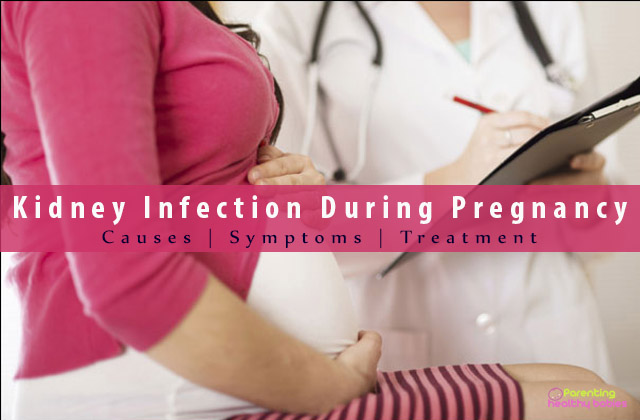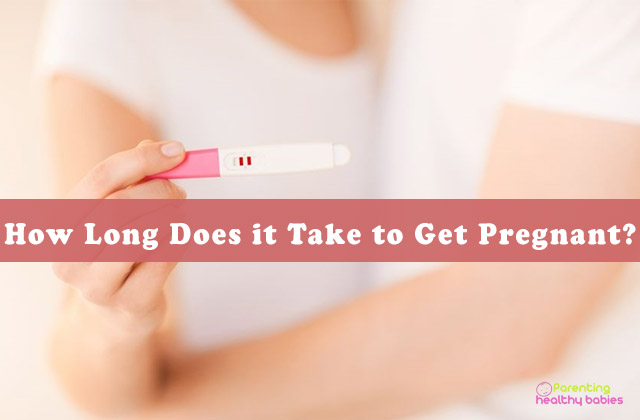Have there been any pain during pregnancy wasn’t normal? There are different kinds of pain associated with pregnancy. Some of them are normal but others have to be reported immediately to the gynecologist. One such pain seen during pregnancy is ovarian pain.
Read More:Pelvic Pain During Pregnancy: Symptoms, Causes and Home Remedies
During Delivery is it Normal to Have Ovary Pain?
Pains during the entire term of pregnancy are common. But having pain in ovaries, vaginal area, pelvic area or abdomen might be a matter of concern. Regardless of the trimester, make sure to consult the doctor immediately and more so if there is ovarian pain during the first trimester.
Ovarian pain can be the sign of some serious complications such as ectopic pregnancy, miscarriage, spontaenous abortion and uterine fibroids.
Read More:Ovarian Cysts: Symptoms, Types, Risk, Treatment and Prevention
15 Must Know Causes of Ovary Pain in Early Pregnancy
Following are the causes of ovarian pain include –
Ectopic Pregnancy
It occurs when the fertilised egg gets implanted at another place rather than the uterine lining (this is where the fertilised egg is supposed to get implanted). This is a case of extrauterine pregnancy in which the egg implants outside the uterus.
The most common place is the fallopian tube and it happens due to internal blockages.
Ovarian pain is often not due to the ovaries. The organs are so close that it becomes difficult to understand where the pain is coming from.
Whether it is left ovary pain during pregnancy or right ovary pain in pregnancy, talk to the doctor immediately to avoid complications.
The pain arises as the embryo grows in size and stretches the tube. This is a cause of ovary pain during the first trimester of pregnancy and is a medical emergency. It can lead to bleeding and pose serious, life threatening risks and other complications.
Read More:Pelvic Pain During Pregnancy
Appendicitis
Appendix is a vestigial organ which is of no use. It is positioned just below the large intestine. During pregnancy, it may shift and enter the pelvic area and lead to ovary pain. The treatment involves a small surgical/laser procedure and requires the use of mild anesthesia. This must be treated before it affects the baby and can lead to infection in the baby.
Gallbladder Problems
The gallbladder is located near the ovaries and is responsible for fat digestion. Stone or infection in the gallbladder can cause pain in the right or left ovary.
Many women fail to understand this pain and consider it as a normal pregnancy pain. Inform the doctor immediately if it is experience this kind of pain.
Treating gallbladder stones is simple and requires surgery. The doctor will give anesthesia while surgically removing the stones. However, it is difficult to treat during pregnancy. Anesthesia can harm both mother and the baby. It is also difficult to come out of anesthesia during pregnancy.
Urinary Tract Infection
Though the ovaries are not functioning during pregnancy, they can get infected. Any infection in the urinary tract can spread to the ovaries and cause pain.
It is treated with antibiotics. The doctor will prescribe a course of antibiotics and ask to take rest. Make sure to complete the course to get rid of the infection and the pain.
Ovulation
The ovaries are not supposed to produce eggs during pregnancy. However, it continues in some women.
The ovaries keep on releasing eggs and lead to mild pain. This runs the risk of double pregnancy and don’t take birth control pills during this time. The doctor will ask to use a condom while having sex to prevent complications.
Do not take analgesics for pain as these come with serious side effects and lead to complications in pregnancy.
Fibroids
This causes a lot of pain and also called as non-cancerous ovarian tumours. Fibroids can also lead to pain in the pelvic region. These can create problems with implantation of the fertilised egg by causing blockages. These can form due to injuries or diseases.
Endometriosis or the abnormal growth of the tissue lining the uterus, making it move outside the uterus can also lead to ovarian pain.
Miscarriage
It happens in 25% of the cases and usually in the first 21 days. It is associated with excessive pain in the uterus and it can last up to 10 days. Talk to the doctos as it needs immediate treatment.
Accommodation Pain
As the pregnancy reaches 8-12 months, all the organs in the pelvic region start making space for the baby. However,this is something normal and no need to worry. Some cramping of the muscles to accommodate the baby is normal.
Molar pregnancy is when the baby grows as a lump of tissues. It is associated with vaginal bleeding and also a lot of pain. The embryo cannot survive in this and the lump needs to be removed immediately.
Kidney Stones
The pain spreads from the kidneys to the ovary and will also have a burning sensation while passing urine. If the urine has blood, the chances are high that there are kidney stones. The doctor will recommend drinking a lot of water to dissolve the stones.
Cyst Twist or Torsion
Cysts due to PCOD have become very common in today’s women. And these cysts can be very painful. Twisting of these cysts can cause extreme pain. In such a case, surgical removal of the cyst is the only option.
Round Ligament Pain
If there is pain in the second trimester, it is due to the stretching of the ligament from the groin to uterus. This is referred to as the round ligament pain. The pain gets worse during sleeping or sitting for a long time. Keep hydrated to reduce this pain to some extent . this pain has no threat either to mother or the baby.
Ovarian Torsion
If the fallopian tubes or the ovary gets twisted, it is known as ovarian torsion and can lead to a lot of pain. The blood supply to the ovaries is disrupted and causes unbearable pain in pregnant women. Treatment involves surgery and though it is not a major one, anaesthesia is needed.
Placental Abruption
It is the early detachment of the placenta from the wall of the uterus and this causes ovary pain during pregnancy third trimester. It can also lead to bleeding. The doctor will perform an ultrasound to diagnose if this is the cause of ovarian pain. And this may lead to premature labour. It causes pain in the entire pelvic region as the placenta detaches itself and hugs down from the uterus. It can affect the lives of both the mother and the baby.
Preeclampsia
It is an increase in blood pressure and deficiency in the supply of oxygen in pregnant women. If preeclampsia and dehydration happen at the same time there may be ovarian pain. Make sure to stay hydrated in order to avoid this and drink lots of water and fluids everyday. This usually happens during the final trimester.
Premature Labour
If there is risk of premature labour there may be ovarian pain. The uterus contraction will cause ovarian pain and in such a situation the doctor will prepare for premature delivery. The pain is unbearable and will radiate in all directions during labour.
When to Seek Doctor’s Help?
There are some of the signs that need to be well aware of –
- Extreme abdominal pain that seems to get worse
- Vaginal bleeding
- Chills or fever
- Nausea and vomiting
- Dizziness, nausea and the feeling of lightheadedness
- Difficulty in breathing
- A throbbing and persistent headache
- Sudden swelling of the hands or feet
- Vision changes
- A sudden increase in size of the abdomen
Conclusion
If during pregnancy there is any kind of pain that doesn’t go away on its own, talk to the gynecologist immediately which may or may not be ovarian pain.
References
- https://parenting.firstcry.com/articles/15-causes-of-ovarian-pain-during-pregnancy/
- https://www.healthline.com/health/pregnancy/ovary-pain-early-pregnancy













